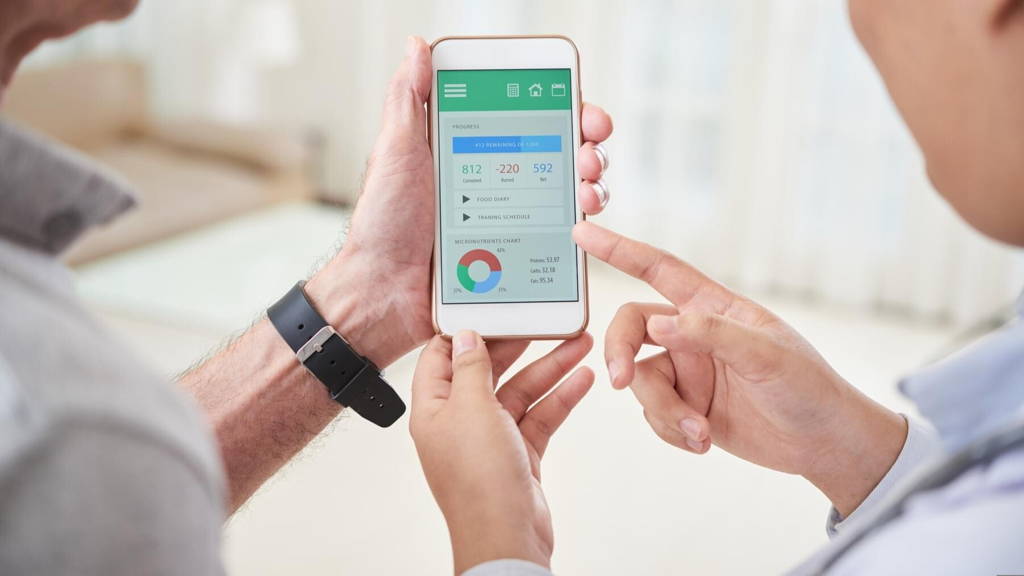Health platforms, mobile apps, digital therapies – innovations in healthcare can lead to a radical change in health management and the way care is provided to patients. However, with their growing importance and the level of adaptation in the market – advanced by the COVID-19 pandemic – the significance of assessing their effectiveness and potential benefits increases while removing barriers to adoption becomes necessary.
The IQVIA Institute’s report identifies trends in four areas: innovations, scientific evidence, regulations, and adaptation.
Speeding up digital health innovations
The number of mobile health apps for consumers currently exceeds 350,000. 2020 proved to be a record-breaking one, with as many as 90,000 new health apps being launched, or more than 250 apps per day on average. Many of them were developed to tacked COVID-19-related challenges, among others, contact tracing apps or COVID-19 certificate apps. Invariably for several years, the top category is fitness/wellness. Apps dedicated to preventing, monitoring, and supporting therapy are also gaining momentum. In this mass of different mobile solutions, choosing the right app might be problematic. App stores do not provide reviews, with the only guide being the number of downloads and user reviews based on personal user experience. As a result, high-quality, certified solutions are lumped together with apps that have not been verified in terms of the benefits that their suppliers promise they offer. The conditions that the apps most frequently support are mild mental conditions, diabetes, and cardiovascular diseases. These make up over half of all the available apps. A significant change in the structure of e-health solutions is also visible. In 2018, only 28% of apps focused on a particular condition, while in 2020, their contribution increased to 47%.Regulatory agencies start approving digital therapeutics to treat human diseasesThis change results from the increased possibilities from wearables, which form sources of the data collected and analysed in health apps. Currently, 55% of them focus on monitoring physical activity and fitness, while 45% collect such medical data as pulse, body temperature, blood oxygen level, etc. The COVID-19 pandemic accelerated the wearables market – with many people around the world independently monitoring blood oxygen saturation level using pulse oximeters, offered free of charge to patients who were infected and treated at home. Sensors and digital biomarkers are also included in research on new drugs and medical devices, transforming the way clinical trials are carried out. The data can be collected directly from wearables or during home visits. Hybrid clinical trials reduce the burden for the volunteers who participate in them, allowing more data to be gathered in a shorter time.
Evolving regulation and commercialization
Digital therapeutics (DTx), as well as digital care (DC) products and tools, are based on the concept of “software as a means to treat, prevent or manage specific conditions.” They concentrate on a very narrow clinical indication because the process of market authorization requires the provision of evidence related to their efficacy and safety of use. As a result, many of them cannot be prescribed by a doctor. Nevertheless, the numbers of DTx and DC are growing fast. Currently, there are over 250 such solutions available on the market, around 150 commercially. Healthcare systems around the world notice the role that DTx and DC can play in healthcare. As a result, the number of regulatory and reimbursement pathways developed by local authorities is on the increase. As a result, patients get solutions with proven clinical effectiveness that can also be recommended by doctors and reimbursed by payers. Currently, at least 25 DTx products have been granted market authorization through regulatory processes, and another 23 are commercially available. They have indications predominantly in the mental health and behaviour modification areas. An additional 89 are in earlier stages of development and evidence generation. Many of them rely on a digital version of cognitive-behavioural therapy (CBT). DTx offer an opportunity for better access to mental health therapies when access to this type of benefit is limited. The biggest challenge is the acceptance of e-solutions in the healthcare market, including their reimbursement.More benefits shown in scientific research
Since 2007, more than 2,000 studies have been published on the effectiveness of digital health apps (nearly 1,500 in the past five years). Since 2018 the dynamics of publications have slowed. However, the number of systematic reviews and meta-analyses in 2020 reached 14% of all published studies. To put it simply, there is increasing scientific evidence that the use of certified digital health solutions has a beneficial effect on health and prevention. Most evidence supports the implementation of digital therapies in the treatment of patients with cardiovascular diseases (e.g., screening process for atrial fibrillation and heart arrhythmias, cardiac rehabilitation, and hypertension), behavioural modification (e.g., pharmacotherapy management, exercise, healthy diet, and weight management, and smoking cessation programs) and treatment of certain chronic conditions (e.g., pain conditions). Nevertheless, digital health solutions require further research. In the case of some applications, it would be advisable to carry out randomized controlled trials to show precisely the benefits, durability of the clinical effect, cost-effectiveness, and leverage compared to alternative interventions.Barriers to digital health adoption
Companies which develop evidence-based, certified digital health solutions have increasing opportunities to roll them out in the healthcare market and achieve a return on investment. Four currently available commercialization models can be distinguished:- direct-to-consumer sale (consumers paying out-of-pocket);
- value-based contracting – a type of payment model which connects the price of an app with its effect (if a digital app brings a desired outcome, payers pay the full price; otherwise, payers can receive reimbursement or discount from manufacturer);
- “device-like” reimbursement (an app is certified as a medical device);
- “drug-like” reimbursement (an app is categorized as a digital therapy, similarly to drugs).






